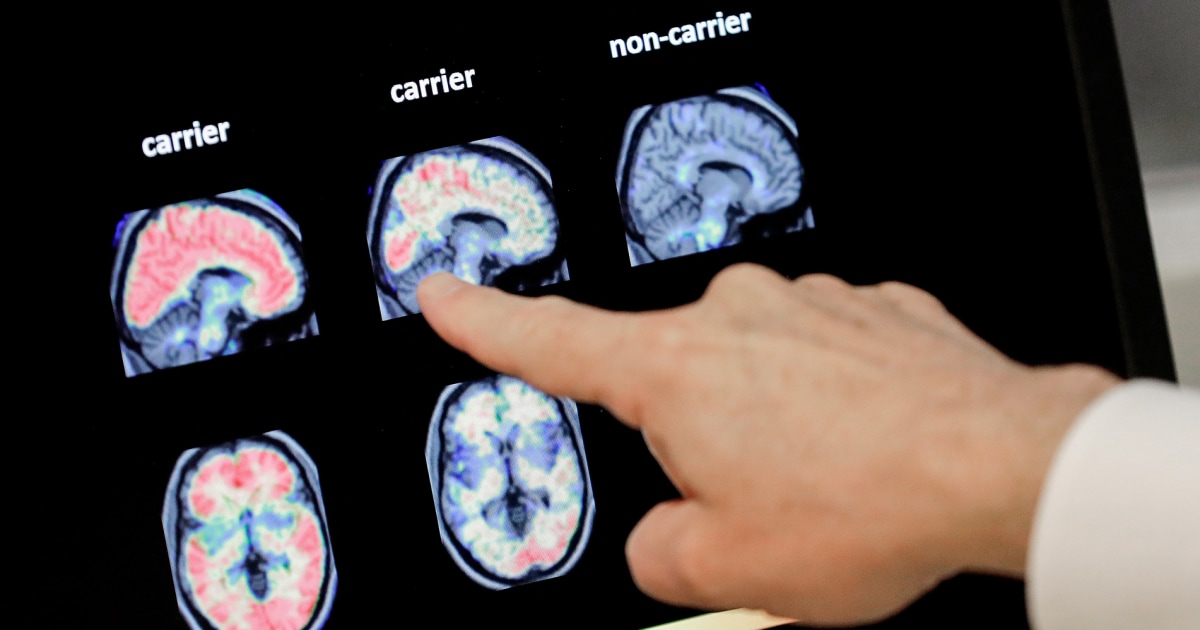Alzheimer’s disease affects nearly 7 million Americans and over 32 million people worldwide. Traditional diagnostic methods include cognitive tests, CT scans, PET scans and spinal taps. Early detection is crucial as the disease’s pathology can begin developing approximately 20 years before symptoms appear.

Also Read: Lenacapavir: HIV Vaccine Could Cost as Little as $40 Per Year for Patients
The study was conducted by a team of scientists led by Dr. Sebastian Palmqvist and Dr. Oskar Hansson at Lund University in Sweden.
The findings were published in the journal JAMA Neurology on July 28, 2024. The study followed 1,213 participants with an average age of 74, who were undergoing cognitive evaluations in Sweden.
The blood test diagnosed Alzheimer’s with 90% accuracy surpassing the accuracy of cognitive tests and CT scans.
Dementia specialists using standard methods without PET scans or spinal taps were accurate 73% of the time. Primary care doctors were accurate only 61% of the time.
Focuses on detecting a protein called ptau-217, a form of tau that forms tangles in the brains of the patients. Tracks both tau tangles and amyloid plaques, which are closely linked to cognitive decline.
Tau protein is more closely associated with cognitive decline than amyloid. Blood tests could provide a less invasive and more accessible option compared to PET scans and spinal taps.
It may enable routine screening in primary care settings, similar to cholesterol and PSA tests. Early detection of Alzheimer’s, increasing accessibility for people from diverse backgrounds.
Presently blood tests are mainly used in research and clinical trials to identify Alzheimer’s among participants. They are used by some specialists to differentiate Alzheimer’s from other forms of dementia.
Could become a standard screening tool for people exhibiting cognitive impairments. Envisioned as part of regular health check-ups if studies confirm efficacy across diverse populations.
Blood tests are recommended only for those already showing symptoms of cognitive decline, not for asymptomatic individuals.
Concerns exist about the psychological impact of diagnosing asymptomatic individuals without available preventive treatments.
Testing should follow traditional methods like cognitive exams and CT scans with blood test results confirmed through PET scans or spinal taps.
Ethical use in people without symptoms should be limited to research contexts until effective preventive therapies are developed.
The Blood Test Focuses on two Primary Biomarkers Associated with the Disease:
1. Plasma Phosphorylated Tau 217 (p-tau217): This biomarker is crucial for detecting tau protein buildup, which is indicative of amyloid pathology in the brain.
2. Amyloid 42/40 Ratio: This test measures two types of amyloid proteins that accumulate in the brain during Alzheimer’s disease.
By combining the results from p-tau217 and the amyloid 42/40 ratio, researchers developed an Amyloid Probability Score.
The blood test achieves a 90% accuracy rate in diagnosing Alzheimer’s, which is higher than the current rates achieved by traditional methods.
Also Read: Nipah Virus: Kerala Takes Preventive Measures After Teenager Dies
Neurologists and memory specialists currently have a 73% accuracy rate in diagnosing Alzheimer’s. General practitioners have an even lower accuracy rate at 61%.
Existing diagnostics typically include patient interviews, cognitive tests, CT scans and in some cases, spinal fluid taps or PET scans.
These traditional methods can be expensive, invasive and not always available leading to diagnostic delays and inaccuracies.
Unlike spinal taps and PET scans the blood test is non-invasive and can be easily administered in a clinical setting.
The test is less expensive compared to other diagnostic tools. The blood test can be performed quickly reducing the waiting time for diagnosis and treatment.
The test is already available in the USA and is expected to become more widely accessible globally.
The blood test’s accuracy was validated through comparisons with spinal fluid taps and amyloid PET scans, the current gold standards in Alzheimer’s diagnosis.
Highly accurate blood tests could accelerate the disease’s research, allowing for faster clinical trials and the development of new medications.
The test enables earlier detection of Alzheimer’s, allowing for timely interventions that could slow or prevent disease progression.
Blood tests lack formal FDA approval and insurance coverage. The absence of standardized guidelines leaves a gap in appropriate usage and integration into healthcare systems.
Recent drugs like Leqembi and Kisunla, which target amyloid plaques are approved for use in early-stage Alzheimer’s.
Blood tests could identify eligible patients for these treatments, which slow cognitive decline but carry risks like brain swelling.
Alzheimer’s shares symptoms with other conditions like vascular dementia, depression, sleep apnea and vitamin B12 deficiency leading to potential misdiagnoses.
Also Read: Listeria Outbreak Linked to Deli Meat Causes 2 Deaths and 28 Affected Across 12 States






















